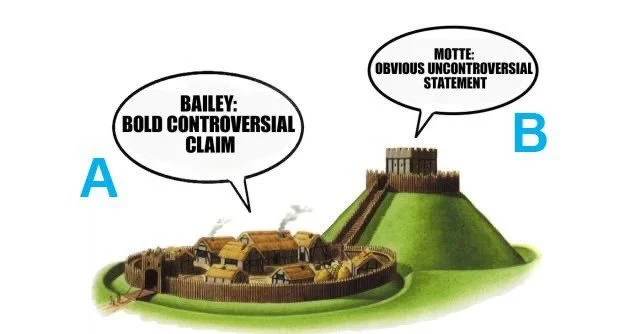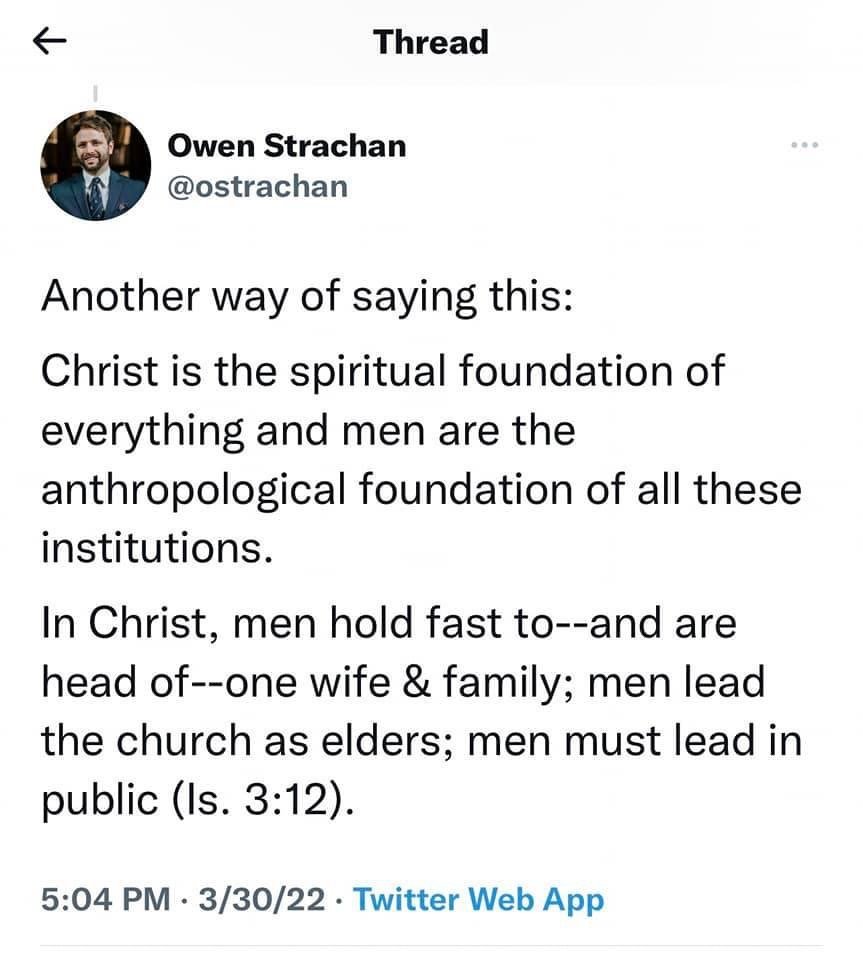Replacing Jesus, Roman Forts, and The Hypostatic Union
Though every era of the Church is laden with theological and moral confusion, the rise of social media hot-takes adds fuel to this fire. Though we should have reasonable expectations for platforms with character limits, that does not lessen our responsibility to be careful with the Word of God and to be slow with our speech (or iPhone typing).
This is, unfortunately, one such example of not being careful.
I do not want to "pile on" the author of these tweets, and I also want to stress that this isn't really about him. His errors are not unique.
Important theological implications are at play here and how many have come to the defense of these posts is not reasonable, honest, or helpful. I want to focus on those two learning opportunities; bad argumentation and bad theology.
Before we dive in, these posts don't necessarily reflect the ideas of the original poster. I know it's an odd thing to say, but we can't underestimate our human ability to put our foot in our mouth. We are all inconsistent to one degree or another.
What matters almost as much as what we say is how we act when putting our foot in our mouth. Do we double down? Deflect? Act like we're being "misunderstood" while portraying ourselves as victims? Attack the critics who pointed out the mistake?
Or, sadly, instead of removing that foot and making needed corrections, sometimes we remove the first foot and immediately shove the second foot right in. We all make mistakes. I get it. We too often say things we're not trying to say. So I'm not necessarily saying that the author affirms the false doctrines he's posting. But he's still responsible for what he says.
So let's get into it.
We need to begin by not lessening what Owen is saying to make it more palpable. We would be well served during this discussion to keep the Motte and Bailey Fallacy in mind. This fallacy is the tactic of making a controversial and challenging to defend claim to then "retreat" back to a much less controversial claim.
In ancient and medieval architecture, forts were often built with two distinct parts—the bailey and the motte. This was very common in Roman forts. The bailey was much weaker and harder to defend, and the motte was a much stronger keep. So, when under attack and things aren't going well for the bailey, defenders would retreat to the much stronger fortress—the motte.
While the author isn't implementing this fallacy directly (or at least not much), many of his defenders construct mottes for him in various comment sections.
So, what is the author not saying?
He is not saying men are important. He is not saying that husbands have marital headship. He is not even saying men are normatively called to be the leaders.
Rather, his chosen words speak of ultimacy.
The foundation ≠ important
Everything is staked on men ≠ many things are staked on men
Bailey ≠ motte
The fundamental problem with the original post is that it makes man foundational instead of Jesus. "Everything" is staked on men. Men are "the foundation."
Brothers and sisters, Jesus is our foundation.
"According to the grace of God given to me, like a skilled master builder I laid a foundation, and someone else is building upon it. Let each one take care how he builds upon it. For no one can lay a foundation other than that which is laid, which is Jesus Christ." – 1 Corinthians 3:10-11
a friend made the below correction and I couldn’t agree with it more.
But Jesus is a man, right?
Absolutely.
However, we should be cautious about equivocating on this vital distinction.
The God-Man Jesus Christ is not just any "strong man." We cannot simply apply a haphazard Transitive Property to this problem and give glory to all men. Jesus is a man, but not all men are Jesus. Not only does the above text teach that Jesus is a foundation, it explicitly teaches that Jesus is the only foundation.
This point leads to the next important doctrinal pillar we need to discuss.
Some have appealed to the author's follow-up post to clarify or redeem his meaning. However, while the first post teaches that all men are "the foundation," the second post makes another error that it's much better.
This further context splits up "spiritual" and "anthropological" foundations so that the author can affirm that Jesus is the spiritual foundation of all things and everything is "spiritually" staked on men.
However, just as Jesus is the Lord of our spiritual salvation and how we live our lives, Jesus is the foundation of the Church and our institutional endeavors. Jesus is the foundation of the Church, marriage, and family. And yes, for any truly just society, he'll be the foundation for that society.
Jesus is not just a disembodied spirit that only affects the supernatural. Rather, Jesus is both fully God and fully man. This dynamic is the teaching of the Hypostatic Union.
Some of the early gnostics denied the physical nature of Jesus, and this heresy often led to all sorts of other problems. This denial of the orthodox teaching of Jesus's dual nature very regularly led to a sort of dualism that artificially divorced the natural from the supernatural. Though there are proper distinctions, these two natures are tightly related, and in the Hypostatic Union, there's perfect unity.
We also see this in humanity. We are not just anthropological bodies, and we are not just spiritual souls. Instead, we are both body and soul.
Jesus bodily sits on his throne at the Father's right hand (Luke 22:69), and his authority is over both heaven and earth (Matthew 28:18). He is not just spiritual, and he is not just anthropological, and his authority, centrality, and foundationality are not separated and divorced from the material world of human institutions.
Though we must not slide into dualism, we should also not deny the importance of authority distinctions. The hypostatic union and a proper understanding of reality do not negate human authority, but this authority is vested authority flowing from Christ and Christ alone. Whether over a family, the Church, or civil government, any genuine human authority is vested authority from Jesus.
The author's second post/clarification/context would have us believe in pseudo-gnostic dualism with two foundations that correlate with two separate natures. But that's not what scripture teaches. Scripture teaches us that we have one foundation, one source of authority, and one savior and that singular power has two natures—King Jesus.
When we over-emphasize the humanness of Jesus, our worldview shifts to making humankind ultimate, and when that emphasis is on a particular gender, that worldview follows. This reminds me of Arianism in this way. In subordinating Jesus to the Father on a basic ontological level, we don't make God greater; we make Jesus lesser. In making this error, though the intention is to glorify maleness, we bring Jesus down and make him much more like us.
While pondering this, I couldn't help but notice that the author's views on the trinity could be accurately described as almost semi-Arianism. Owen Strachan rejects the historical, creedal, and Biblical understanding of the Holy Trinity in his ontological subordinationism. Though I can't know with any certainty whether or not these ideas are connected in the author's reasoning, it's not hard to see a trend in the semi-Arian camp of Eternal Subordination of the Son (as well as EFS and ERAS) to elevate maleness in unhealthy and extrabiblical ways.
Though I deeply empathize with the needed fight against normalizing and even celebrating sexual immorality, embracing harmful gender dysmorphia, and advocating in favor of abortion, we must fight these fights on a firm foundation. Yes, we must fight to maintain orthopraxy in the Church, but not at the expense of orthodoxy. We can and must tell the truth about gender, sexuality, and sin, but not by diminishing King Jesus and his Glory.
If any war is to be fought for the culture, it must be built on the solid rock of Jesus Christ, not maleness. Masculinity is good, but the human heart is a master craftsman of idols. When what is good is made into the foundation, we have crafted an idol.
Though these are important matters, be careful to not fall into mockery and snide talk. Though Owen is in error, he’s a brother. Treat him like one.
God be praised, everything was at stake on the Cross, and Jesus is risen and raised to Kingship. We can rest in that.




